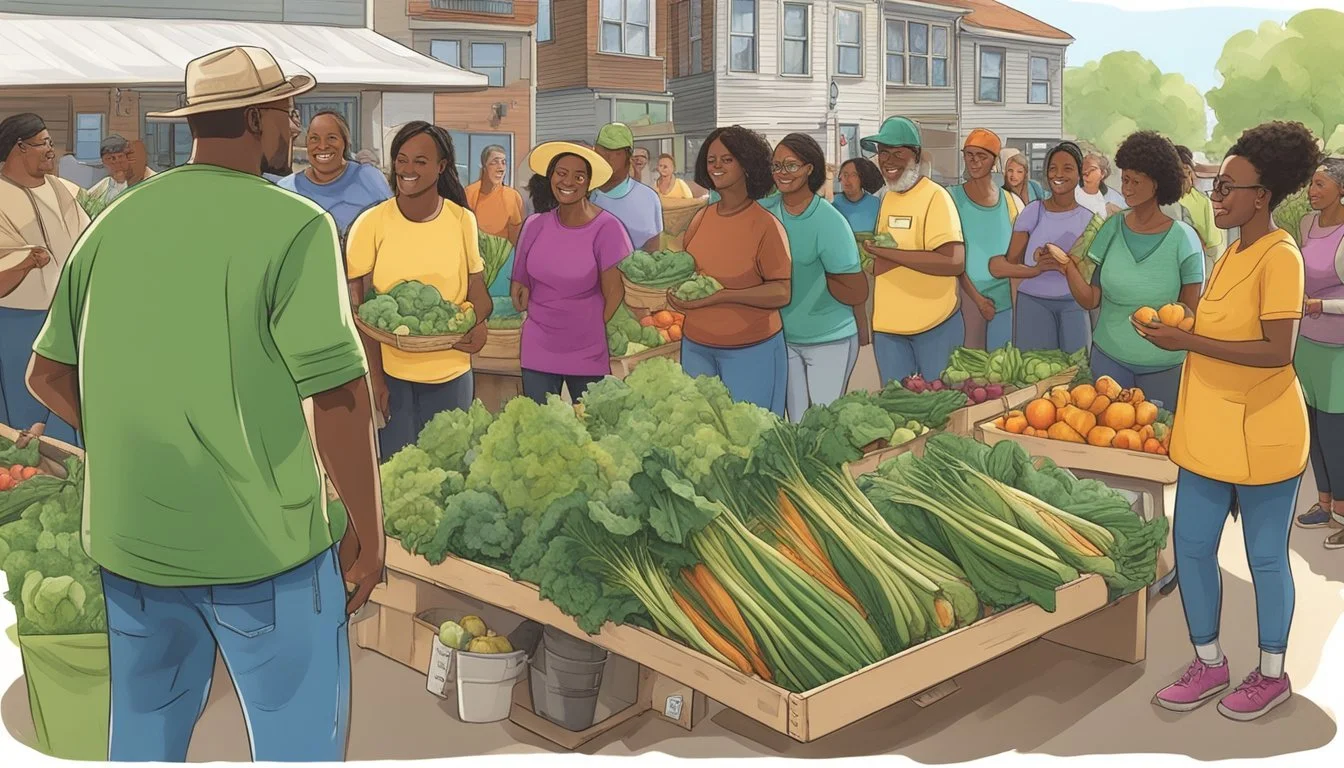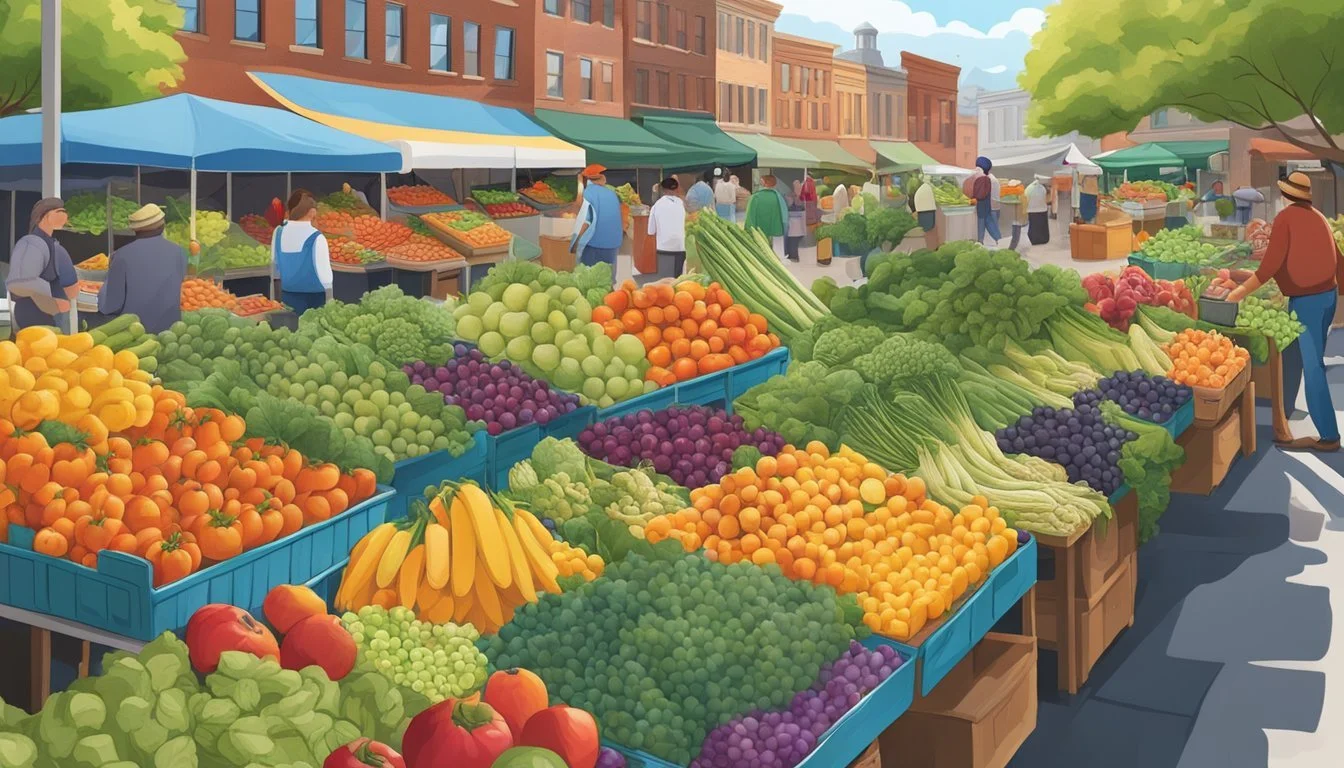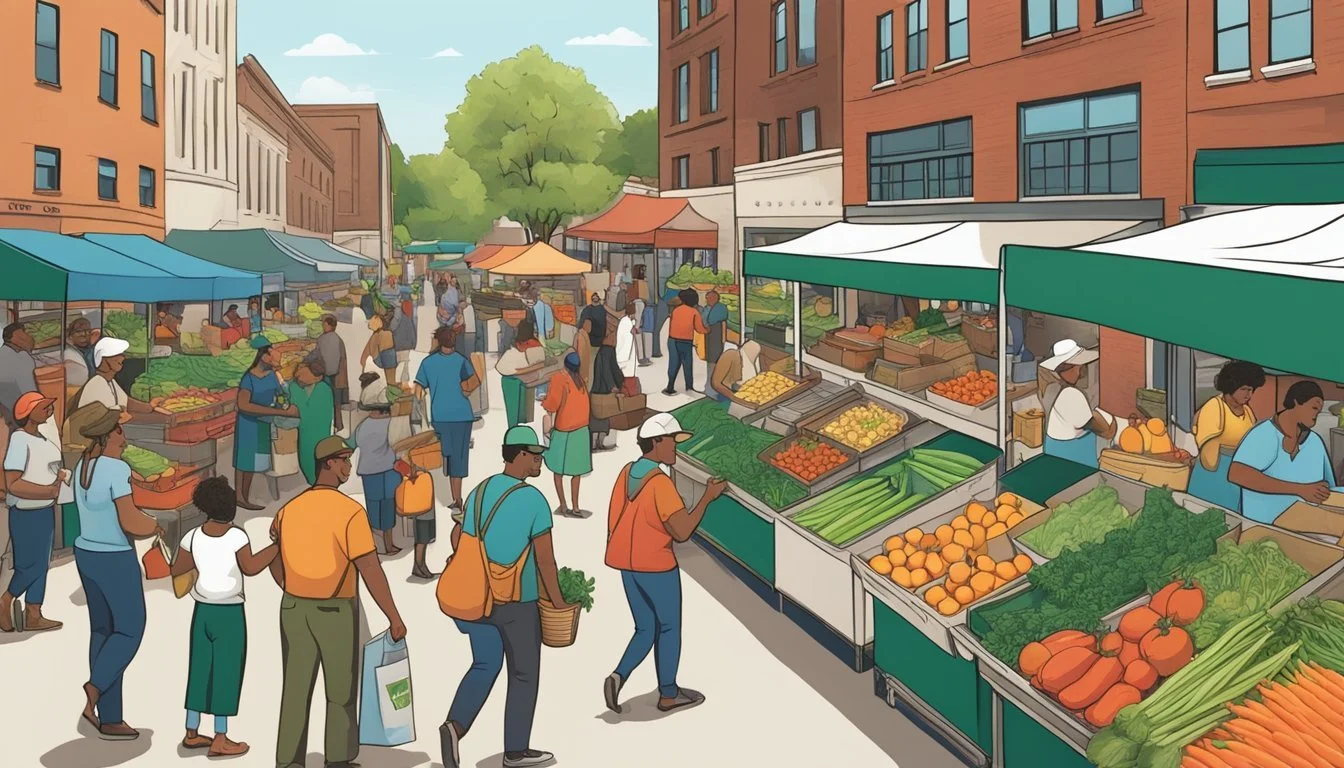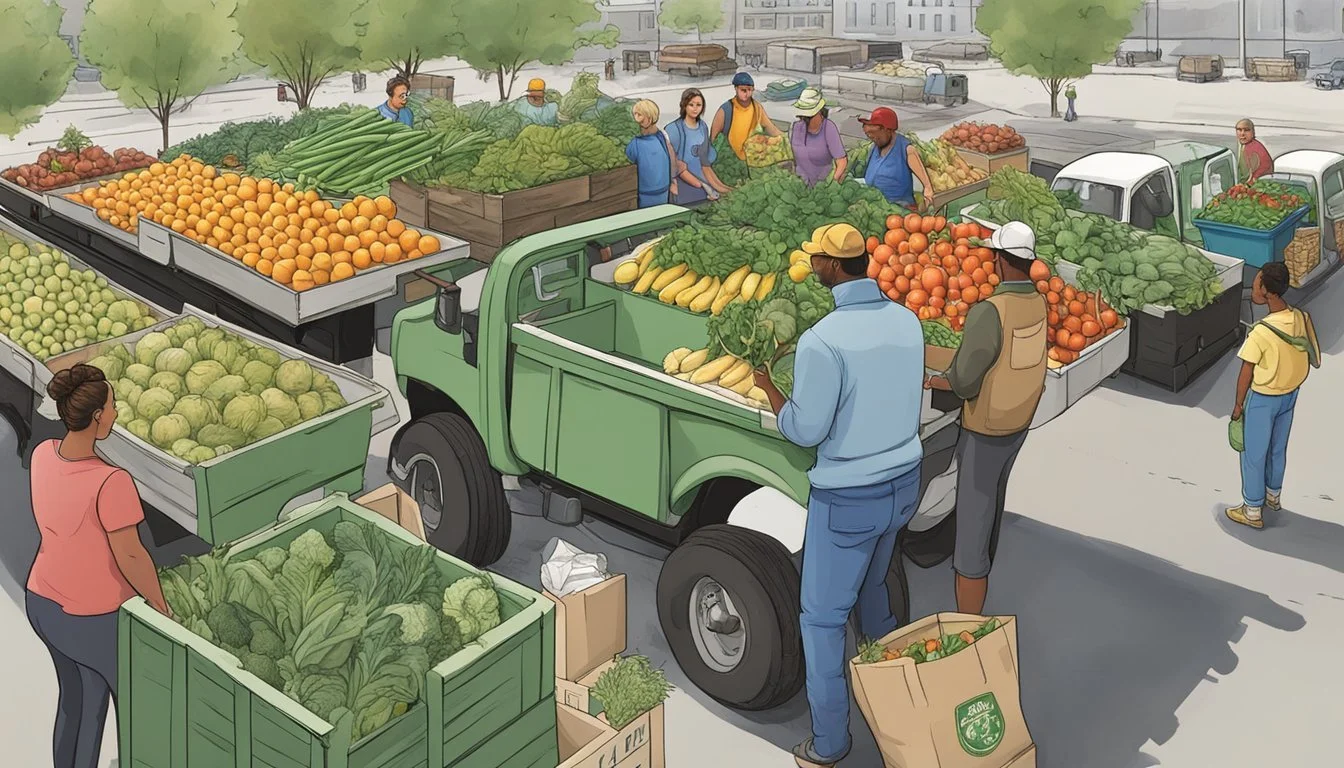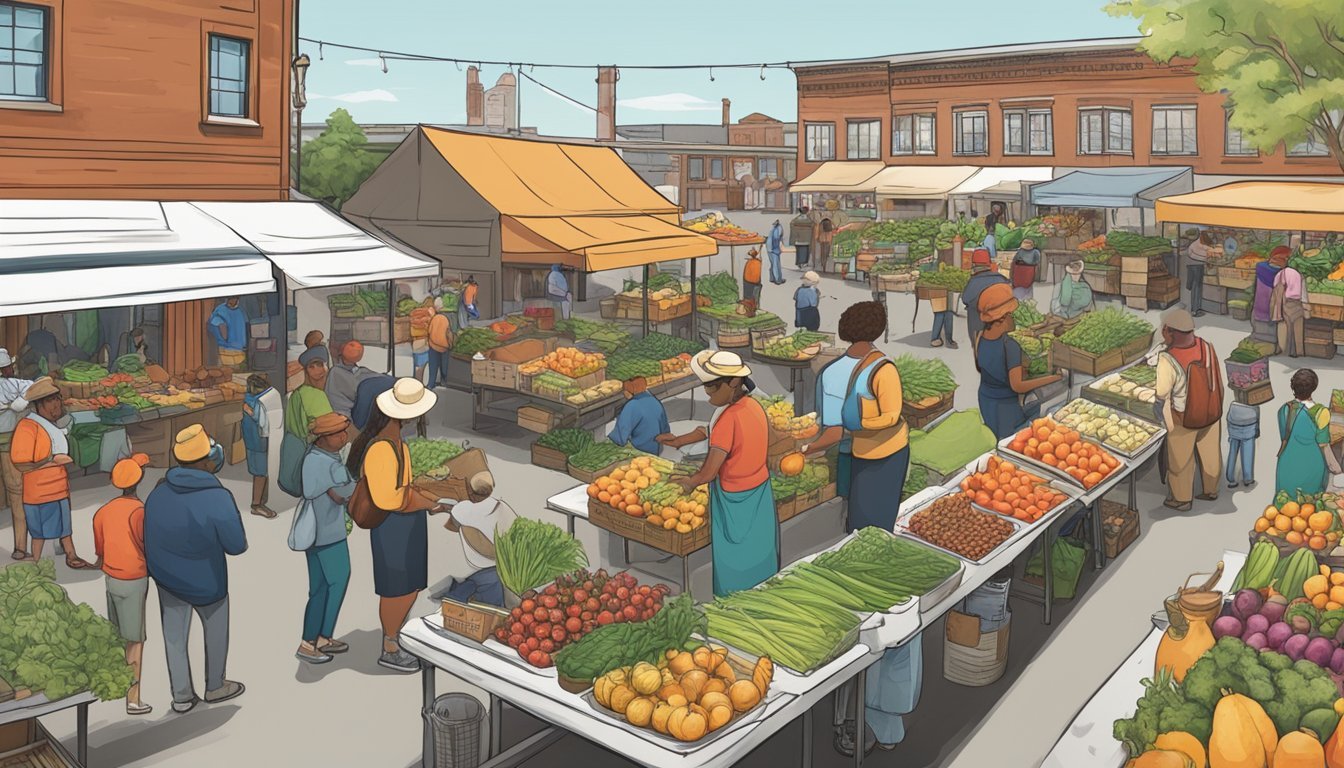Community Supported Agriculture (CSA) in Buffalo, NY
A Guide to Local Farm Shares
Community Supported Agriculture, or CSA, has become an integral part of the urban-rural connection in Buffalo, NY. This model of farming and food distribution aligns local farmers with community members who share the costs, risks, and bounty of food production. CSA members, or shareholders, invest in a farm's harvest upfront, effectively becoming stakeholders in the farm's crop yields. This partnership not only provides consumers with regular allotments of fresh, locally grown produce but also fosters a deeper understanding of the food-growing process and supports sustainable agricultural practices.
In Buffalo, a variety of CSA options are available to consumers seeking to engage with this movement. Farms like Native Offerings Farm and The Root Down Farm have been catering to the community, offering a range of organic produce, adhering to environmentally responsible farming methods, and encouraging a direct farmer-consumer relationship. The diversity of CSA programs in the area ensures that residents from all parts of the city and its surroundings can partake in this mutually beneficial arrangement.
Moreover, CSA is more than just a way to obtain food; it's a commitment to food security and the support of local economies. By participating in a CSA, members contribute to the viability of small farms and help preserve the agricultural landscape surrounding Buffalo. Local CSAs such as 5 Loaves Farm have made it a point to integrate community education, demonstrating the importance of sustainable agriculture and providing insights into the seasonality of food production in New York state. Through CSA, Buffalo's citizens actively participate in a food system that prioritizes community wellbeing, land stewardship, and the production of nutritious food.
History of CSA in Buffalo
Community Supported Agriculture (CSA) programs in Buffalo, NY, reflect a commitment to local food systems and have shown steady growth over time. They have significantly influenced the local food culture, connecting residents to the source of their produce.
Origins and Growth
The CSA model was introduced to the United States in the 1980s, but took root in Buffalo when local farms realized the potential of this direct-to-consumer approach. Farms in the Buffalo area, driven by NOFA-NY certified organic standards since 1990, began offering CSA shares to residents. These shares often include a variety of locally grown produce, thereby supporting local farmers and encouraging sustainable practices.
Notable CSA farms serving Buffalo include:
Native Offerings Farm: Known for its ecological farming and being the primary business serving the greater Buffalo area.
Porter Farms: Offering CSA shares for pickup and drop-off in various locations in Buffalo, with the aim of fostering community engagement.
Influence on Local Food Culture
CSA programs in Buffalo have played a substantial role in shaping the local food culture. By prioritizing locally grown and produced food, these initiatives have helped foster a sense of community and have made it easier for Buffalo residents to access fresh, seasonal produce. The availability of CSA shares has increased awareness of local food sources and has led to a wider appreciation for sustainable agriculture in the region.
Impact on Buffalo's Food Culture:
Increased Access: Residents have gained improved access to fresh produce directly from local farms.
Community Connection: CSAs have created avenues for Buffalo locals to connect with farmers and understand the agricultural process.
The continual growth of CSA programs in Buffalo indicates a thriving local food scene and a committed partnership between farmers and community members.
Understanding CSAs
Community Supported Agriculture (CSA) serves as a partnership between farmers and community members, providing fresher produce options for consumers and financial security for producers.
Basic Principles
CSAs operate on a subscription basis, where members buy "shares" in a farm's harvest in advance. These shares typically consist of a portion of the farm's crops and vary in size depending on the specific CSA. By purchasing these shares, the community provides upfront capital to the farmers, which covers the production costs at the start of the growing season. This model fosters a shared risk and reward system, as members are subject to the fluctuations of the harvest, getting more produce in abundant years and less in lean ones.
Types of CSA Models
Traditional CSA:
Members receive a weekly or bi-weekly box of assorted farm products.
The content of the box is determined by the farm's current harvest.
Members have some choice in the selection of their produce at a designated pick-up location.
Allows for personal preference while still supporting local agriculture.
Specialty CSAs:
Focus on a specific type of produce, such as meat, dairy, or a particular vegetable.
They cater to specific consumer preferences or dietary needs.
Farmers in Buffalo, NY, have embraced the CSA model, with options ranging from organic certified to home delivery services, ensuring a variety of choices for community-supported agriculture participants.
Benefits of Joining a CSA
Joining a Community Supported Agriculture (CSA) program in Buffalo, NY provides tangible perks for both consumers and producers. These benefits range from economic and environmental aspects to social and health advantages.
Support for Local Farmers
Local support: When community members participate in a CSA, they provide crucial financial support to local farmers. This direct form of patronage enables farmers to plan their crop sizes, invest in their operations, and navigate the unpredictability of farming with more security.
Economic stability: CSA subscriptions can offer a reliable source of income for producers, which helps sustain the farming business through the various seasons.
Access to Fresh Produce
Seasonal selection: Consumers receive a varied selection of seasonal produce. This not only ensures freshness but also introduces them to new types of fruits and vegetables they might not have tried otherwise.
Nutritional value: Fresh produce, often harvested within 24 hours of pickup, retains more nutrients, providing significant health benefits to the community members.
Strengthening Community Ties
Shared experience: CSAs often function as social hubs where individuals with an interest in healthy eating and sustainable living can connect.
Educational opportunities: Farmers often share information about the food, how to prepare it, and the benefits of the crops, fostering an informed community that values food provenance and sustainability.
How CSAs Work
Community Supported Agriculture (CSA) programs in Buffalo, NY operate on a foundation of direct, mutual commitment between local farmers and community members. They facilitate fresh, seasonal produce delivery or pick-up, with structured membership and share options that sustain both the consumer's need for quality food and the farmer's need for a reliable market.
Membership and Shares
Members of a CSA purchase a "share" of a farmer's harvest in advance of the growing season. These shares are often delineated into different sizes to accommodate varying household needs, with options for large or small shares. Weekly distributions of produce are typical, where members receive a box consisting of whatever is in season and ready for harvest.
Seasonal Commitments
When individuals become CSA members, they usually agree to a season-long commitment, which helps farmers plan crop sizes and budgets. For Buffalo CSAs, this means that members are entitled to a steady supply of produce throughout the New York growing season, which can start in spring and extend into late fall.
Distribution Methodologies
CSAs employ different methods for their members to receive their weekly shares of fresh produce. Members can opt for home delivery services where available, thus receiving their shares right at their doorstep. Pick-up schedules are also common, where members are required to collect their shares from designated locations such as local farmers’ markets, farms, or centrally agreed-upon community spots. These methodologies ensure that the produce remains as fresh as possible upon receipt.
CSA Farms in Buffalo
Buffalo, NY, supports a variety of Community Supported Agriculture (CSA) farms that offer residents seasonal access to fresh, locally grown produce. Through CSA programs, Buffalo locals can engage directly with the area's farming community, supporting sustainable agriculture and enjoying the benefits of fresh, healthy food.
Notable CSA Farms
Native Offerings Farm and Root Down Farm are prominent CSA providers serving the Buffalo area. Native Offerings Farm, situated in Cattaraugus County, is recognized for its commitment to ecological farming and offers a diverse range of vegetables to its members. Root Down Farm operates its CSA project out of Clarence Center, providing another source of fresh produce to Buffalo residents.
5 Loaves Farm is known not only for its CSA program but also for its sliding scale payment system, which ensures community accessibility.
Groundwork Market Garden and Common Roots Urban Farm form part of Buffalo's vibrant urban agriculture scene, providing community access to fresh produce within the city limits.
Farm-Specific Offerings
Native Offerings Farm delivers weekly vegetable shares to Buffalo, ensuring fresh produce is readily available for pick-up.
Address: Little Valley/ Orchard Park/Buffalo, NY
Primary Business: CSA
Root Down Farm focuses on utilizing land in Clarence Center for their CSA, with the following pick-up details:
Pickup Hours: Summer Share Tue and Thu 2-6:30 PM, Winter Share Tue and Thu 3-6 PM
Location: Clarence Center, NY 14032
5 Loaves Farm provides flexible payment plans and emphasizes community affordability for their produce.
Joining a Buffalo CSA
Individuals interested in joining a CSA in Buffalo can consider the following steps:
Research the various CSA farms to understand their specific offerings and pick-up locations.
Contact the chosen CSA farm directly to inquire about share availability, pricing, and pick-up schedules.
Subscribe to a share by completing any necessary forms and providing payment according to the farm’s guidelines.
Furthermore, many farms, like 5 Loaves Farm, request an initial deposit and full payment by a specified date before the growing season commences.
Local Impact of CSA
Community Supported Agriculture (CSA) has made significant strides in Buffalo, NY, meshing economic growth with environmental awareness and educational opportunities. These programs allow consumers to directly support local organic farms, creating a robust network for fresh, locally-sourced food.
Economic Benefits
CSAs have bolstered Buffalo’s economy by fostering direct market access for local farms. This eliminates middlemen, ensuring more profits stay with the growers. Additionally, CSAs contribute to job creation within the community, as farms often require more labor to manage increased production and distribution demands. A key example is the growth of Native Offerings Farm, whose CSA program supports their business model and allows local money to circulate within the Buffalo area.
Job Creation: Increased demand for local produce leads to more farm jobs.
Market Access: Farmers gain direct access to consumers, enhancing profit margins.
Environmental Sustainability
By engaging with CSAs, Buffalo residents directly support ecological farming practices. The focus on organic farming means that more area farmers are employing methods that improve soil quality without the use of harmful chemicals. The approach not only provides fresher, healthier food options but also promotes biodiversity and better water retention in the soil.
Organic Farming: CSA supports farming without synthetic pesticides or fertilizers.
Soil Quality: Sustainable practices lead to improved soil health and productivity.
Educational Outreach
CSAs in Buffalo serve as educational hubs to increase awareness about sustainable agriculture and organic farming. Farmers often provide educational experiences for community members, fostering a better understanding of where their food comes from and how their choices impact the environment.
Farm to Consumer Education: Knowledge sharing about food sourcing and production.
Community Engagement: Opportunities for community members to learn about sustainable living practices.
Through these aspects, CSA programs in Buffalo, NY, not only enrich the local food scene but also anchor a holistic model for environmental stewardship and economic resilience.
Challenges and Considerations
Community Supported Agriculture (CSA) programs in Buffalo, NY face several challenges. Members and farmers alike must navigate seasonal variability and financial planning to maintain a sustainable and beneficial CSA experience.
Overcoming Seasonal Variability
Farmers in Buffalo deal with the vicissitudes of the region's climate, impacting the variety and volume of produce available throughout the year. To mitigate this issue, CSA programs often offer diverse shares that include storage crops during leaner months, safeguarding against unforeseen shortages.
Financial Considerations for Members
Members of Buffalo CSAs must consider the financial commitment required when joining a CSA program. While some farms offer the flexibility of monthly payments, others may require upfront payment for shares, which can be financially daunting. Options like cash, check, and credit are typically available for payment, and some farms may allow members to pay what they can afford, making it more accessible to a broader community.
Community Engagement
Community Supported Agriculture (CSA) programs in Buffalo, NY, foster robust ties between local farmers and community members. These initiatives are designed to strengthen relationships and provide educational opportunities to enrich shareholders' understanding of agricultural practices.
Building Consumer-Farmer Relationships
CSA initiatives create a direct pipeline between Buffalo's farmers and their consumers, which bolsters a sense of community involvement. Shareholders invest in the local farms and receive fresh, seasonal produce in return. This symbiotic relationship supports farmers financially while enabling consumers to become active participants in the agricultural cycle. Families often form meaningful connections with the people who grow their food, gaining insights into organic and ecological farming methods.
Educational Events and Classes
Many Buffalo CSAs go beyond offering shares of produce; they become centers for education on sustainability and food preparation. Frequent offerings include:
Cooking Classes: These sessions empower shareholders with skills to turn their fresh produce into nutritious meals.
Farm Events: Families are welcomed to participate in farm-related activities, which often serve as hands-on educational experiences.
By involving shareholders in events and classes, CSAs provide a platform to deepen the community's understanding of food production and foster a closer relationship with the environment.
Future of CSA in Buffalo
Community Supported Agriculture (CSA) in Buffalo, NY, is poised for growth and transformation, bolstered by increasing consumer interest in local food sources and innovative farming practices.
Trends and Projections
The CSA model in Buffalo is experiencing a surge in participation, with more residents valuing fresh, locally grown produce. Local farms are expanding their membership systems to meet rising consumer demand, allowing a greater number of individuals to receive a season's worth of products. As part of this trend, farms like Native Offerings Farm have made significant strides, anchoring their business in a robust CSA model that serves the Buffalo area. These farms' integration into community market spaces such as the Jamestown Public Market further solidifies the position of CSA in the region's future.
Rising consumer demand for local foods
Increased farm memberships in CSAs
Stronger community market integration
Innovations in CSA Practices
Advancements in CSA practices are unfolding as Buffalo farmers adopt more ecologically sustainable farming techniques. Embracing innovation, these farmers are enhancing their CSA offerings, incorporating home deliveries and select pickup options, directly connecting with consumers in Buffalo and neighboring areas. Farms like Porter Farms exemplify this shift, offering flexible share sizes and pickup locations to accommodate the varying needs of their members. This move to convenience and sustainability is a cornerstone of CSA's future in Buffalo.
Ecologically sustainable farming as a core practice
Flexible share sizes and pickup options increasing accessibility
Home delivery services bridging gap between farm and consumer


